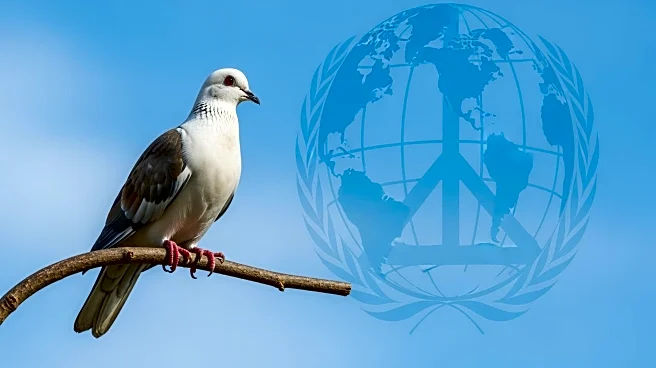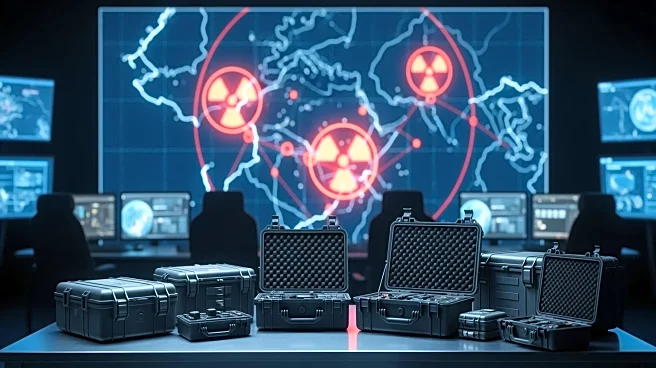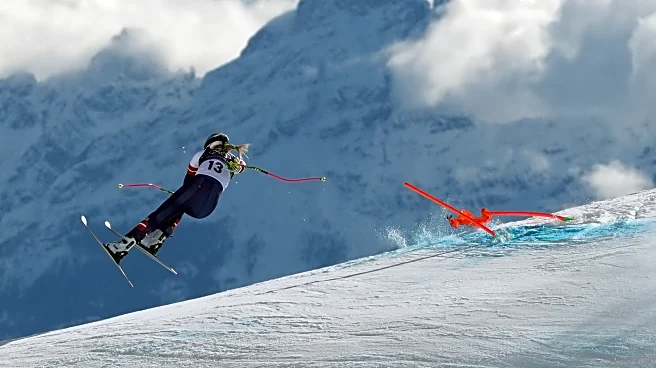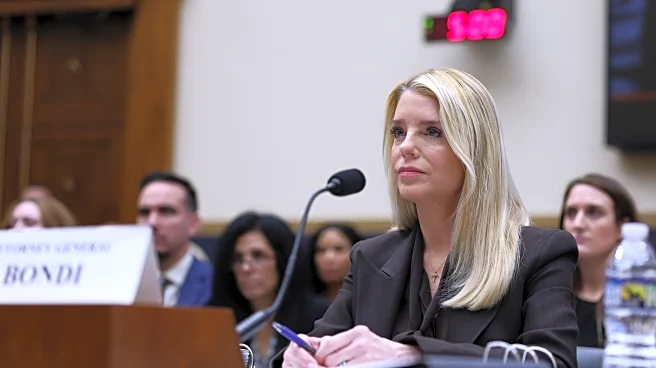What's Happening?
President Donald Trump has called for Ukraine and Russia to 'stop where they are' and end their ongoing conflict following a meeting with Ukrainian President Volodymyr Zelenskyy at the White House. Trump's
comments suggest a shift in his stance, as he previously showed support for Ukraine reclaiming lost territories. The meeting comes after Trump expressed frustration with the prolonged war, urging both sides to cease hostilities and return to their families. Zelenskyy, while agreeing on the need for a ceasefire, did not directly address Trump's suggestion for Ukraine to concede land. The discussions also touched on military aid, with Trump hesitating to provide Ukraine with long-range Tomahawk missiles, a decision that could impact Ukraine's strategic capabilities against Russia.
Why It's Important?
The call for a halt in the conflict by President Trump is significant as it reflects a potential shift in U.S. foreign policy regarding the Ukraine-Russia war. This stance could influence international diplomatic efforts and impact the geopolitical landscape in Eastern Europe. The hesitation to supply Ukraine with Tomahawk missiles may affect Ukraine's military strategy and its ability to pressure Russia into negotiations. The outcome of these discussions could have broader implications for U.S.-Russia relations and the balance of power in the region. Stakeholders, including European allies and international organizations, are closely monitoring these developments as they could alter the course of the conflict and future peace negotiations.
What's Next?
President Trump plans to meet with Russian President Vladimir Putin in Budapest, Hungary, in the coming weeks, potentially paving the way for direct negotiations between the conflicting parties. The possibility of a 'double meeting' involving both Zelenskyy and Putin is being considered to facilitate productive talks. The international community will be watching closely to see if these meetings lead to a breakthrough in peace efforts. Meanwhile, Ukraine continues to seek military support, including advanced weaponry, to strengthen its position in negotiations. The evolving diplomatic dynamics may influence future U.S. military aid decisions and the strategic approach to resolving the conflict.
Beyond the Headlines
The ethical and legal dimensions of urging Ukraine to concede territory are complex, as it involves considerations of sovereignty and international law. The cultural impact on Ukrainian society, which has been deeply affected by the war, is significant, with potential long-term shifts in national identity and resilience. The decision to withhold military aid could also affect U.S. credibility as a supporter of democratic nations facing aggression. These factors contribute to the broader discourse on international conflict resolution and the role of major powers in shaping global peace initiatives.










